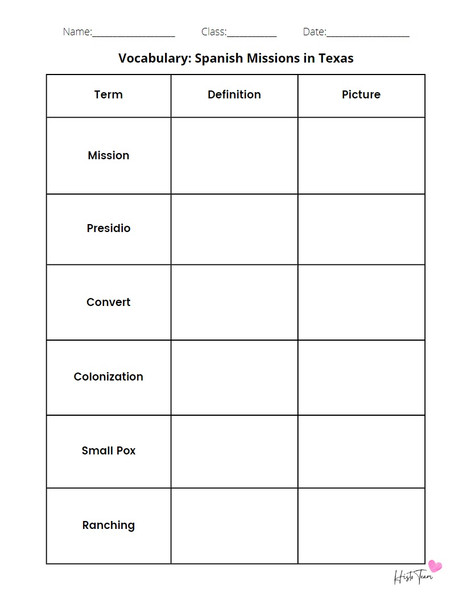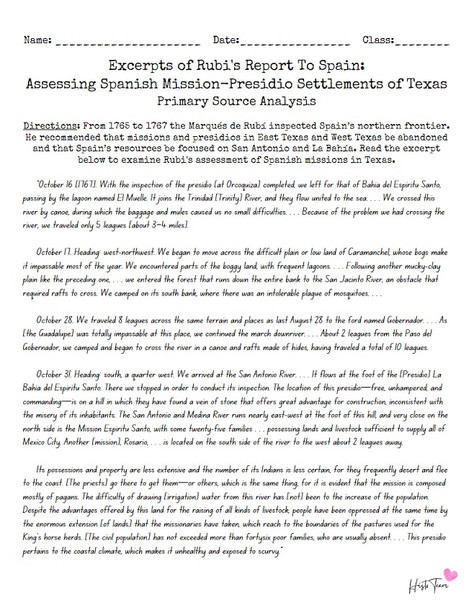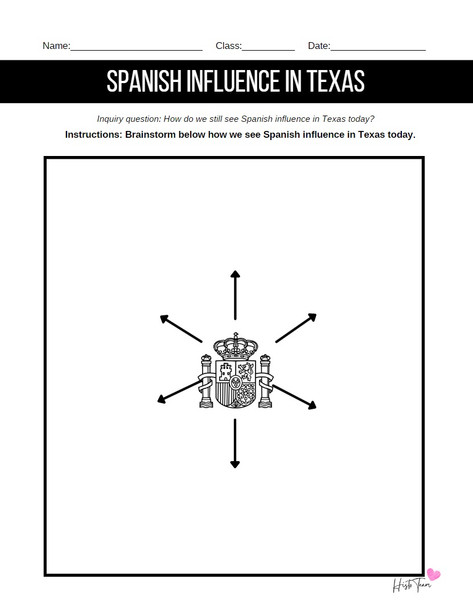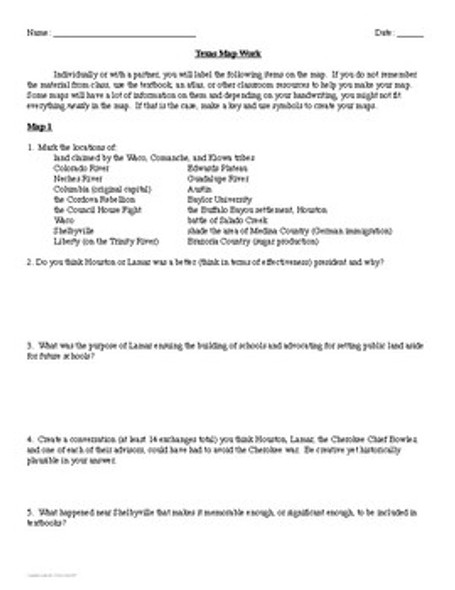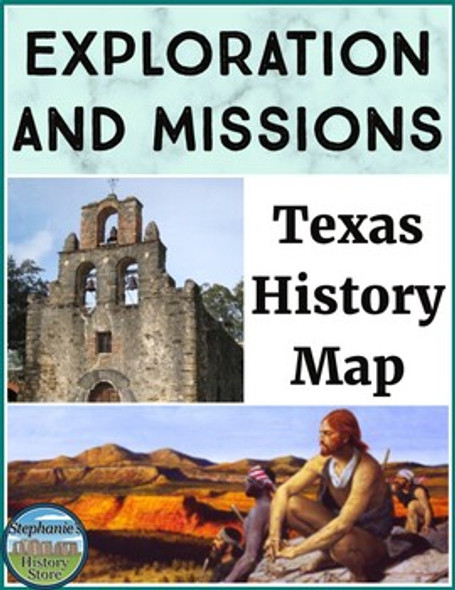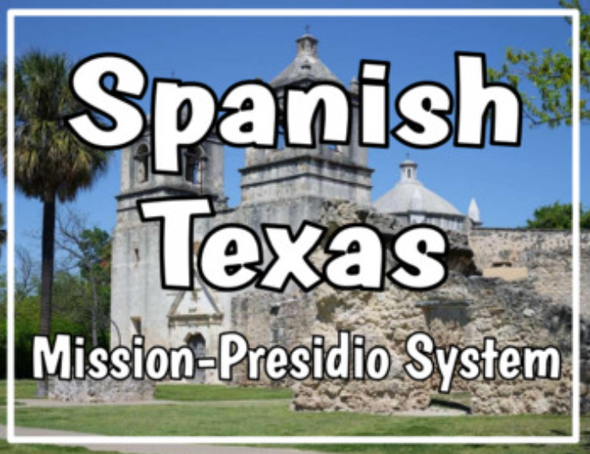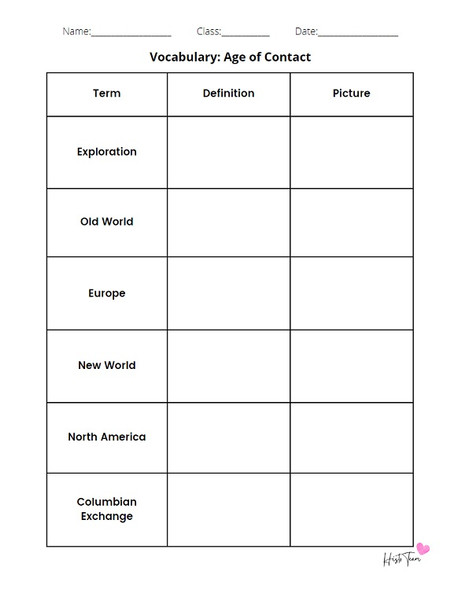Description
Use this engaging Texas History Spanish missions TEKS based resource set to teach your students the history and defining characteristics of the era of Spanish colonization in Texas. This 30-page resource set covers: the effect of La Salle's Fort St. Louis, locations of the major missions in Texas, San Antonio de Valero, important people, challenges of the missions, the Rubi Report, and Spanish influence in Texas. This product includes: vocabulary charts, Cornell style notes, a map activity, writing assignments, Spanish mission-presidio research activities, primary source analysis of excerpts from both Marques de Rubi and Alonso de Leon, and more!
See video preview for examples!
This resource set covers the following TEKS:
- 7.1A identify the major eras in Texas history, describe their defining characteristics, and explain why historians divide the past into eras including...Spanish Colonial;
- 7.1B apply absolute and relative chronology through the sequencing of significant individuals, events, and time periods; and
- 7.1C explain the significance of the following dates: 1718, founding of San Antonio;
- 7.2C identify important events and issues related to European colonization of Texas, including the establishment of Catholic missions, towns, and ranches,
- 7.9C analyze the effects of physical and human factors such as climate, weather, landforms, irrigation, transportation, and communication on major events in Texas
- 7.10A identify ways in which Texans have adapted to and modified the environment
- 7.11A analyze why immigrant groups came to Texas and where they settled;
- 7.19C identify examples of Spanish influence and the influence of other cultures on Texas such as place names, vocabulary, religion, architecture, food, and the arts;
- 7.21B analyze information by sequencing, categorizing, identifying cause-and-effect relationships, comparing, contrasting, finding the main idea, summarizing, making generalizations and predictions, and drawing inferences and conclusions;
- 7.21C organize and interpret information from outlines, reports, databases, and visuals, including graphs, charts, timelines, and maps


